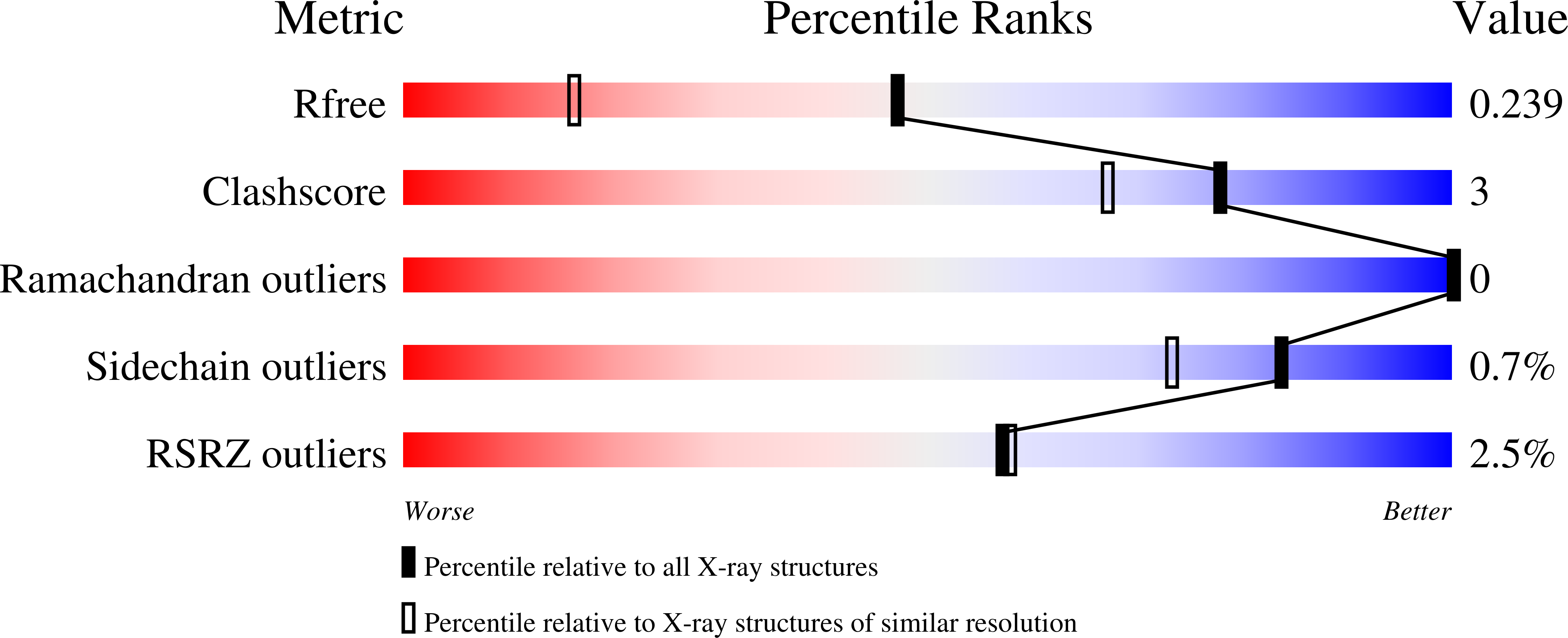High-resolution structures of mutants of residues that affect access to the ligand-binding cavity of human lipocalin-type prostaglandin D synthase.
Perduca, M., Bovi, M., Bertinelli, M., Bertini, E., Destefanis, L., Carrizo, M.E., Capaldi, S., Monaco, H.L.(2014) Acta Crystallogr D Biol Crystallogr 70: 2125-2138
- PubMed: 25084332
- DOI: https://doi.org/10.1107/S1399004714012462
- Primary Citation of Related Structures:
4ORR, 4ORS, 4ORU, 4ORW, 4ORX, 4ORY, 4OS0, 4OS3, 4OS8 - PubMed Abstract:
Lipocalin-type prostaglandin D synthase (L-PGDS) catalyzes the isomerization of the 9,11-endoperoxide group of PGH2 (prostaglandin H2) to produce PGD2 (prostaglandin D2) with 9-hydroxy and 11-keto groups. The product of the reaction, PGD2, is the precursor of several metabolites involved in many regulatory events. L-PGDS, the first member of the important lipocalin family to be recognized as an enzyme, is also able to bind and transport small hydrophobic molecules and was formerly known as β-trace protein, the second most abundant protein in human cerebrospinal fluid. Previous structural work on the mouse and human proteins has focused on the identification of the amino acids responsible and the proposal of a mechanism for catalysis. In this paper, the X-ray structures of the apo and holo forms (bound to PEG) of the C65A mutant of human L-PGDS at 1.40 Å resolution and of the double mutant C65A/K59A at 1.60 Å resolution are reported. The apo forms of the double mutants C65A/W54F and C65A/W112F and the triple mutant C65A/W54F/W112F have also been studied. Mutation of the lysine residue does not seem to affect the binding of PEG to the ligand-binding cavity, and mutation of a single or both tryptophans appears to have the same effect on the position of these two aromatic residues at the entrance to the cavity. A solvent molecule has also been identified in an invariant position in the cavity of virtually all of the molecules present in the nine asymmetric units of the crystals that have been examined. Taken together, these observations indicate that the residues that have been mutated indeed appear to play a role in the entrance-exit process of the substrate and/or other ligands into/out of the binding cavity of the lipocalin.
Organizational Affiliation:
Biocrystallography Laboratory, Department of Biotechnology, University of Verona, Strada Le Grazie 15, 37134 Verona, Italy.














